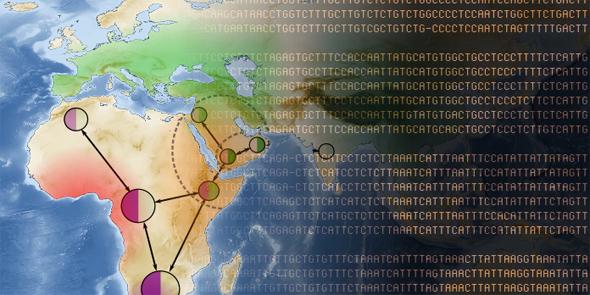
Evolutionary Genomics
Keywords
Human evolution, genomics, population genetics
Research interests
My research seeks to understand the evolutionary genomic and demographic processes responsible for present-day genetic diversity in species and individuals. I am particularly interested in the timescales and events of human and primate evolution, and in relating genetic data to other sources of evidence.
Evolutionary genetics has been transformed by new technologies and the increasing availability of whole genome sequences from multiple individuals within and across species. Such sequences carry information about the ancestry of every individual and about events affecting the ancestral populations from which they descend. To extract that information we need to understand how genomic data respond to evolutionary events, and this understanding is provided by the study of population genetics. We also need efficient computational approaches, because both the amount of data involved and the space of possible past events are vast. Therefore my work is primarily computational in nature, involving substantial data processing as well as theoretical calculations, and I collaborate closely with researchers in wet labs and in other fields.
I am keen to hear from potential students with a good mathematical or computational background and an interest in this area or in evolution more generally.
